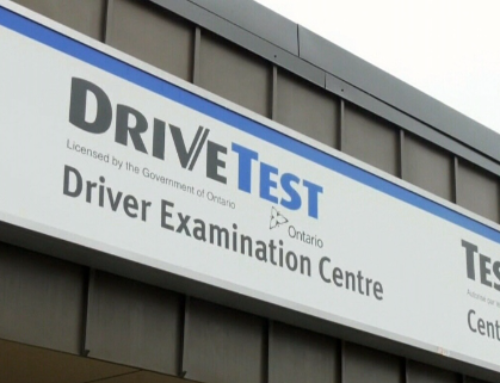Car insurance is a necessary expense for every vehicle owner, but that doesn’t mean you have to pay top dollar for it. There are several strategies you can employ to lower your car insurance premiums without sacrificing the coverage you need. In this comprehensive guide, we’ll explore 10 effective ways to save money on car insurance.
1. Shop Around for the Best Rates
One of the most effective ways to save money on car insurance is to shop around and compare rates from different insurers. Insurance companies use various factors to determine premiums, and rates can vary significantly from one provider to another. By obtaining quotes from multiple companies, you can find the best rate for your coverage needs. Make sure to compare the same levels of coverage and deductibles to get an accurate comparison. Additionally, consider using online comparison tools, which can streamline the process and give you a broader perspective on available options.
2. Bundle Your Policies
Many insurance companies offer discounts to customers who bundle multiple policies, such as home and auto insurance, with the same provider. Bundling your policies can lead to substantial savings on your premiums. Additionally, managing all your insurance needs with one company can simplify the process and make it easier to handle claims and renewals. Some insurers also offer loyalty discounts for long-term customers, further increasing your potential savings.
3. Increase Your Deductible
The deductible is the amount you pay out of pocket before your insurance coverage kicks in. By choosing a higher deductible, you can lower your monthly premiums. However, it’s essential to ensure that you can afford the deductible amount in the event of an accident. Weigh the potential savings against the risk of having to pay a higher deductible if you need to file a claim. To make this decision, consider setting aside an emergency fund that can cover the higher deductible if necessary.
4. Maintain a Good Driving Record
Your driving record is one of the most critical factors that insurers consider when determining your premium. Drivers with clean records, free of accidents and traffic violations, typically pay lower premiums. To maintain a good driving record, follow traffic laws, avoid speeding, and drive defensively. Some insurance companies offer safe driver discounts, so be sure to inquire about these opportunities. Enrolling in defensive driving courses can also enhance your skills and potentially lead to additional discounts.
5. Take Advantage of Discounts
Insurance companies offer various discounts that can help reduce your premiums. Some common discounts include:
- Good Driver Discounts: For maintaining a clean driving record.
- Good Student Discounts: For students with good grades.
- Low Mileage Discounts: For drivers who don’t drive much.
- Safety Features Discounts: For cars equipped with safety features like anti-lock brakes, airbags, and anti-theft systems.
- Defensive Driving Course Discounts: For completing a defensive driving course.
Ask your insurance provider about all available discounts to ensure you’re taking full advantage of them. Additionally, if you belong to certain professional organizations, alumni groups, or even your employer, you might be eligible for group discounts.
6. Consider Usage-Based Insurance
Usage-based insurance (UBI) programs use telematics devices to monitor your driving habits, such as speed, mileage, and braking patterns. If you’re a safe driver, you could qualify for lower premiums based on your actual driving behavior. UBI programs can be particularly beneficial for low-mileage drivers or those who drive mainly during non-peak hours. Contact your insurer to see if they offer a usage-based insurance program and if it’s right for you. These programs not only help you save money but also encourage safer driving habits.
7. Maintain Good Credit
In many regions, insurers use credit scores to help determine premiums. Drivers with higher credit scores often receive lower rates because they’re seen as less risky. To improve and maintain a good credit score, pay your bills on time, reduce your debt, and regularly check your credit report for errors. By maintaining good credit, you can potentially lower your car insurance premiums. Regularly monitoring your credit report can help you catch and resolve any discrepancies quickly.
8. Drive a Car with Lower Insurance Costs
The type of car you drive significantly impacts your insurance premiums. Generally, cars with high safety ratings, lower repair costs, and lower theft rates cost less to insure. When shopping for a new car, consider the insurance costs associated with different models. You can check with your insurance company for a list of vehicles that typically have lower insurance rates. Additionally, researching cars with high safety and reliability ratings can help you make an informed decision.
9. Limit Optional Coverages
While it’s essential to have adequate coverage, you might be paying for optional coverages that you don’t need. Review your policy to see if there are any coverages you can remove. For example, if you have an older car, you might not need comprehensive and collision coverage. Removing unnecessary coverages can lower your premiums, but be sure to retain sufficient protection for your needs. Consult with your insurance agent to understand the implications of removing certain coverages and ensure you still have adequate protection.
10. Regularly Review and Update Your Policy
Life changes can affect your insurance needs and premiums. Major events like moving to a new location, getting married, or changing jobs can impact your rates. Regularly review your policy to ensure you have the right amount of coverage and are taking advantage of all available discounts. Updating your policy to reflect your current situation can help you save money. It’s also a good idea to reassess your coverage needs annually and make adjustments as necessary.

















